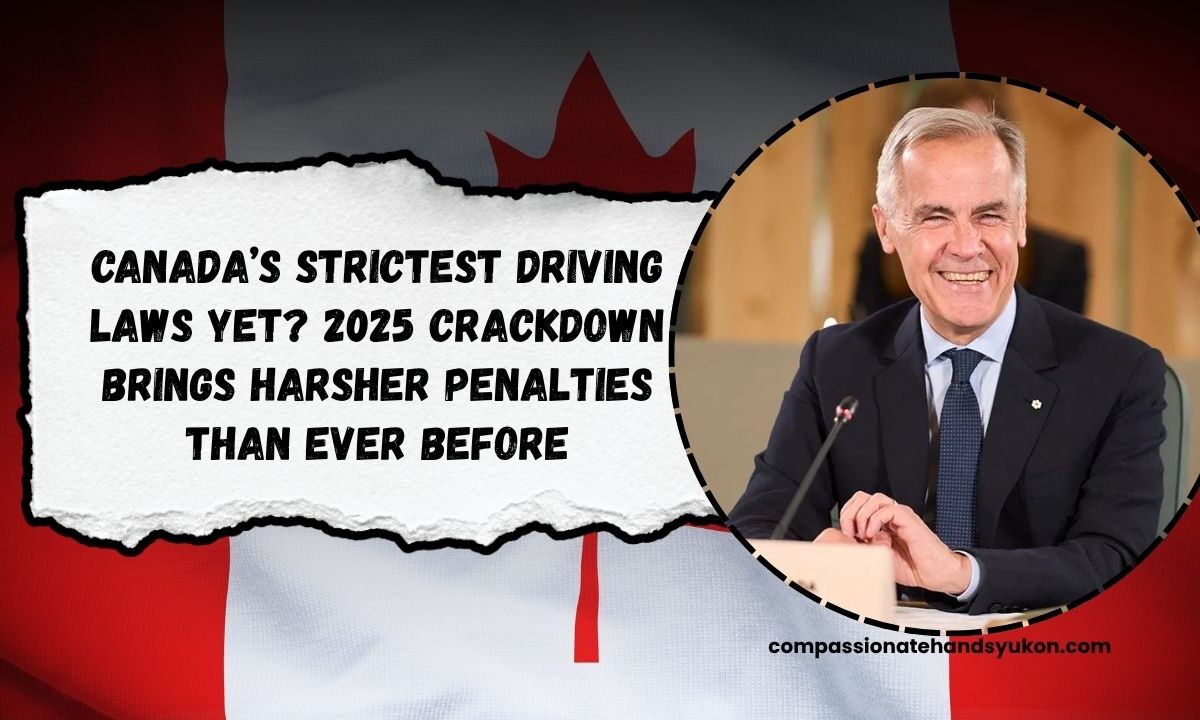The October 2025 Driving Law Reform in Canada marks one of the most sweeping overhauls in recent road safety history.
In response to rising accidents caused by distractions, fatigue, and impairment, the federal and provincial governments have jointly introduced a stricter set of rules, steeper fines, and instant license suspensions to discourage reckless driving habits.
Why 2025 Called for Tighter Driving Laws
This reform wasn’t arbitrary—it was necessary. Road safety reports in recent years revealed alarming increases in accidents linked to texting while driving, cannabis impairment, and driver fatigue.
To reverse this trend, Canadian lawmakers have implemented a zero-tolerance policy designed to penalize dangerous behavior with swift consequences and to reshape driver conduct nationwide.
Key Offences and New Penalties
Here’s a comprehensive breakdown of how penalties have evolved under the 2025 Canadian driving legislation:
| Offence Type | Old Fine | New Fine (2025) | License Suspension | Additional Penalties |
|---|---|---|---|---|
| Texting or Calling While Driving | $300 | $500 | 3 days (1st offence) | 5 demerit points |
| Driving Under Cannabis Influence | $1,000 | $1,500 | 30 days | Mandatory rehab on 2nd offence |
| Driving While Fatigued (Proven) | Warning only | $250 | No | Vehicle may be temporarily detained |
| Speeding in School Zones | $250 | $400 | Points added | Double fine for repeat violations |
| Not Yielding to Emergency Vehicles | $200 | $400 | 7 days (2nd offence) | 4 demerit points |
These standardized penalties apply across all provinces, ensuring nationwide enforcement with no regional loopholes.
How These Changes Affect Canadian Drivers
First-Time Offenders Face Instant Action
Under the new framework, texting or calling while driving now leads to immediate license suspension, even for a first-time offence—warnings are no longer issued.
Stricter Rules for New Drivers
Young motorists under Graduated Driver Licensing (GDL) will undergo extended probation, must complete defensive driving training, and may face extra monitoring if caught breaking the law.
Commercial and Ride-Share Drivers Under Scrutiny
Drivers working for Uber, Lyft, or delivery services are now mandated to use hands-free systems or blocking apps. Violations could result in license cancellation or even business-related penalties.
Higher Insurance Premiums
Violations under these new laws are directly reported to insurance providers. Offenders will likely experience premium increases or cancellations within weeks.
AI-Based Enforcement
Authorities are deploying AI-driven traffic cameras, dash-cam footage, and roadside monitoring technologies to track violations in real time—making evasion nearly impossible.
Why Fatigue Is Now a Chargeable Offence
A key update is the official recognition of driving while fatigued as a legal violation. Until now, fatigue-related incidents were difficult to prosecute. Under the new law:
- A $250 fine can be issued
- Vehicles may be detained
- Drivers may be barred from continuing until they’re deemed fit to drive
This measure underscores that fatigue impairs driving as severely as drugs or alcohol.
How to Stay Compliant with the 2025 Laws
Adapting to the new driving landscape is essential. Here’s how:
- Use only hands-free technology: Even holding your phone at a red light can result in fines and suspensions.
- Never drive while impaired: Avoid the road if you’ve consumed alcohol, cannabis, or strong medication.
- Rest when tired: If you feel drowsy, pull over and rest—fatigue is now a legal liability.
- Keep documents updated: Maintain up-to-date insurance, emergency contacts, and licenses.
- Take defensive driving courses: These can lower insurance costs and enhance legal knowledge.
A Turning Point for Road Safety in Canada
The Canada Driving Law Update of October 2025 signals a national commitment to making roads safer by prioritizing accountability. From AI enforcement to on-the-spot penalties, this legislation aims not just to punish—but to transform behavior behind the wheel.
Canadian drivers must now embrace:
- Zero tolerance for risky driving
- Immediate legal and financial repercussions
- Personal responsibility for road safety
These changes represent more than just rules—they reflect a cultural shift toward safer roads for everyone.
FAQs
What is the fine for texting while driving under the new law?
Under the 2025 update, the fine for texting or calling while driving is now $500, and you could also face a 3-day license suspension and 5 demerit points on your record.
Is driving while tired now a legal offence in Canada?
Yes, driver fatigue is now officially recognized as a legal offence. If proven, it can result in a $250 fine, temporary vehicle detention, and driving restrictions until deemed fit.
How do these changes affect commercial or ride-share drivers?
Drivers for services like Uber and Lyft must use hands-free devices or apps that block phone use. Failure to comply may lead to license cancellation or business penalties.

